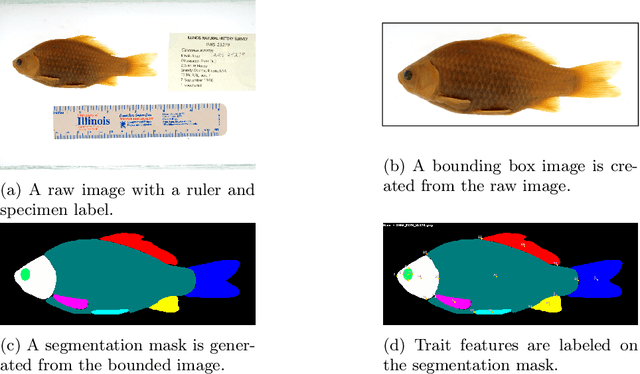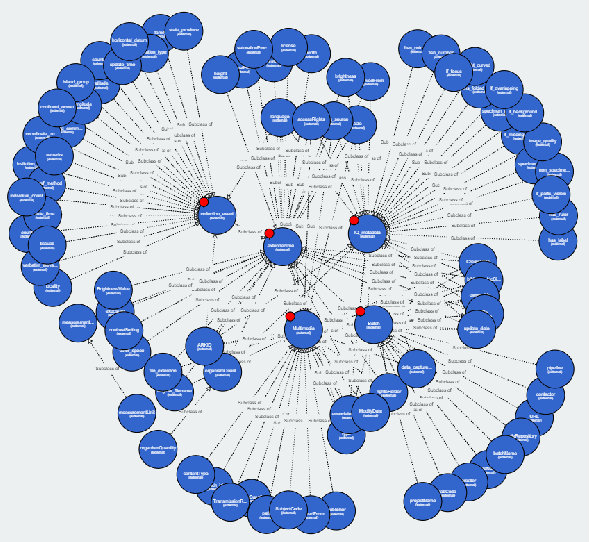Toward a Flexible Metadata Pipeline for Fish Specimen Images
Paper and Code
Nov 18, 2022



Flexible metadata pipelines are crucial for supporting the FAIR data principles. Despite this need, researchers seldom report their approaches for identifying metadata standards and protocols that support optimal flexibility. This paper reports on an initiative targeting the development of a flexible metadata pipeline for a collection containing over 300,000 digital fish specimen images, harvested from multiple data repositories and fish collections. The images and their associated metadata are being used for AI-related scientific research involving automated species identification, segmentation and trait extraction. The paper provides contextual background, followed by the presentation of a four-phased approach involving: 1. Assessment of the Problem, 2. Investigation of Solutions, 3. Implementation, and 4. Refinement. The work is part of the NSF Harnessing the Data Revolution, Biology Guided Neural Networks (NSF/HDR-BGNN) project and the HDR Imageomics Institute. An RDF graph prototype pipeline is presented, followed by a discussion of research implications and conclusion summarizing the results.
 Add to Chrome
Add to Chrome Add to Firefox
Add to Firefox Add to Edge
Add to Edge